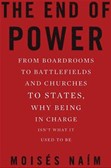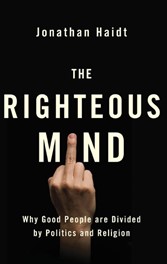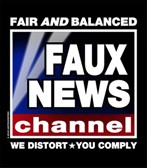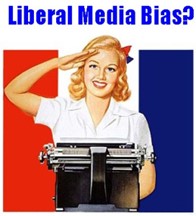 Let’s look at the reaction to the firing or resignation – you choose — of Defense Secretary Chuck Hagel.
Let’s look at the reaction to the firing or resignation – you choose — of Defense Secretary Chuck Hagel.
Let me refer you to two books first. The first The End of Power by Moises Naim. Here’s my review.
The second is The Righteous Mind by Jonathan Haidt. Here’s my review.
Both these books give you more nuance while trying to decipher the exit of Hagel.
Naim’s The End of Power shows how power is eroding in government and boardrooms. We Americans have to realize our government has less control over worldwide situations – and that will continue.
 Here’s why:
Here’s why:
First, we Americans can’t make up our minds. The American mindset has been after the Iraq War to pull back from foreign military entanglements. Democrats and Libertarians seem to be on this side of things. Many believed that arming moderate rebels in Syria would only lead to those guns being turned on us. History proved that in the Russian-Afghan War. But by not arming anti-Assad rebels, the action-reaction was the rise of ISIS. Chances are if we had armed the rebels, something just as bad as ISIS would be in the headlines.
But here’s what is happening now. The American consensus is now drifting back to a more hawkish side – to attack to defend ourselves from ISIS. The horrific beheading videos have only inflamed our pro-war stand, and logically so. This shift is causing problems within Administration and the rest of the political elite.
In defense of our leaders, we the people, as a country, are confused and uninformed. Half of us don’t want any war; another half wants to bomb the shit out of everybody.
The outcome: the political elites don’t answer to us – because we don’t know or refuse to know. Instead, the political ruling class answers to whoever pays. And right now, it is the military industrial complex, a victim of the budget cutting sequester, that is gaining power and influence at the expense of the isolationists that put Obama in the White House.
 Second, the reason for all this turmoil is the changing world economy and technology. More countries — and more tribes, for that matter — have the ability to create havoc or to make themselves economically viable. As a result, the US is somewhat diminished. Add to that, social media is stronger in a lot of countries allowing a lot more voices. Those voices find no majority or consensus and largely create chaos.
Second, the reason for all this turmoil is the changing world economy and technology. More countries — and more tribes, for that matter — have the ability to create havoc or to make themselves economically viable. As a result, the US is somewhat diminished. Add to that, social media is stronger in a lot of countries allowing a lot more voices. Those voices find no majority or consensus and largely create chaos.
Being a leader today is difficult. It is much easier to be a leader in the opposition than it is to be in control.
I am not defending Obama and his administration. He has made mistakes. But I also think he was listening to the majority of people who do not want war, who are tired of war, and who are tired of seeing our young men and women come home dead, injured or mentally diminished. We also realize we have decades of medical bills and retirement to pay for these soon-to-be military vets.
Does this make Obama right in his choices? No. Part of being a leader is taking a nation in the right direction despite the consensus. That’s why we elect leaders. Otherwise, we could do it ourselves. But we can’t. We are too busy trying to run our own lives. That’s why we elect leaders and we have to live with their decisions and results.
 The second book, The Righteous Mind, shows the problems that the Obama administration has. Jonathan Haidt’s great quote from the book is “organizations bind and blind.”
The second book, The Righteous Mind, shows the problems that the Obama administration has. Jonathan Haidt’s great quote from the book is “organizations bind and blind.”
This holds true for any organization: political, private, public, corporation, or church. To keep the organization together you have to forfeit some of your founding principles to keep the organizations going. Google would do no evil until it hurt the company’s bottom line in China. The Catholic Church covered up the priest pedophile scandal.
This appears to be happening in this White House. The White House staff clings to what they ran on in 2008 and 2012. That works ideologically but it does not work practically.
Now they are slowly moving to what will work on the foreign policy stage. Hagel was a Vietnam vet who was careful about war. In this case, some might say too careful. So, his departure probably means we’re going back to war. Yes, it sucks. But the alternative is worse.
At the same time, the same phrase — organizations blind and blind – fits the Pentagon too. Our military leaders want to go to war. That’s what they do. And many – not all – of our military leaders are bought by the military industrial complex. We should be aware of this. The budget sequester has taken millions from our troops and the contractors who supply them. War, for them, is good for business.
That’s not saying we should ignore the advice of the military brass, but they shouldn’t run the country. There is too much talk from pundits who say the war is being run by political hacks in the White House. We should stop and reflect on that. Don’t we choose a president for his counsel and for his ability to run things? Do we want our presidents to abdicate to the military?
If we go all in on this statement, then after a while the pendulum swings back and we will hear cries about not turning our country and the economy over the military blindly – as we appeared to do in 2003 to 2006 at the cost of billions in deficits. JFK’s response to the Cuban Missile Crisis should at least be considered.
Again I am not saying Obama is right or wrong. I am saying there are no easy answers.
 Too often political voices want us to choose between black and white. Your job — as an informed citizen — is to see the gray.
Too often political voices want us to choose between black and white. Your job — as an informed citizen — is to see the gray.
These two books offer you nuance whereas arguments from the Republicans and the Democrats are fueled by their respective media that is financially dependent on special interest that put Republicans and Democrats into the White House and Congress.
It is a fierce circle. And this circle of money and influence dictates what most of us read or see. As an informed citizen, you need to look at all of these carefully.
For instance, you are hearing that the White House “micromanaged” Chuck Hagel. What does “micromanage” mean? That is a Republican talking point that says Mitt Romney should have been president. If we had a true businessman in the White House, they will tell us, this wouldn’t happen. I don’t know if that’s true or not – no one does.
 But then also look at the far left. They would like us to go back to an agrarian age where we didn’t get involved in other countries’ business. That is not feasible as well. You cannot turn back a century of economic infrastructure and development. That’s why we need oil exploration that is environmentally safe. We also need a military that is equipped and trained to deal with the 21st Century enemies that are non-state actors and not spend money like we are taking down the Soviet Union again.
But then also look at the far left. They would like us to go back to an agrarian age where we didn’t get involved in other countries’ business. That is not feasible as well. You cannot turn back a century of economic infrastructure and development. That’s why we need oil exploration that is environmentally safe. We also need a military that is equipped and trained to deal with the 21st Century enemies that are non-state actors and not spend money like we are taking down the Soviet Union again.
One of the reasons why we are having the problems today is because of our increased oil exploration and production. The Middle East and Russia are in these violent predicaments, primarily, because the price of oil has dropped dramatically. Why? We Americans are producing more driving down the price.
So our economic boom is also fueling an adverse reaction that threatens us – namely ISIS.
What does that mean for us? We need to decide if we want the economic gains and the financial responsibility of being the world’s cop and benefactor. We have yet to reconcile those two ideas.
Here’s how to start looking at the issue correctly.
First, stop paying exclusive attention to the far left and the far right. Read a wide range of ideas.
Second, when you take in any content from the mainstream media realize their bias. Understand their bias and use that bias as a filter for the information you are consuming.
Then you will get some truth and common sense.
Unfortunately, folks, it’s up to you.
Comments on this entry are closed.